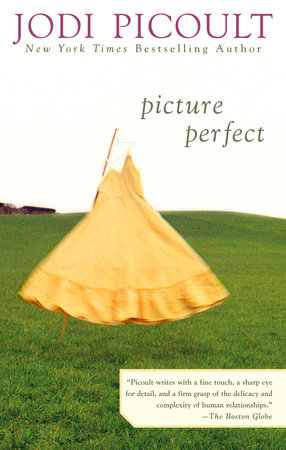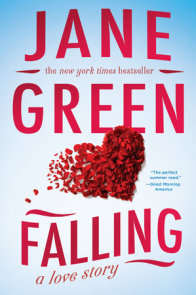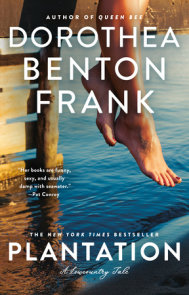READERS GUIDE
Questions and Topics for Discussion
INTRODUCTION
A woman awakens in a Los Angeles graveyard, her hair crusted with blood and suffering from amnesia. William Flying Horse, a new transplant to the city about to start a job with the LAPD, finds her and takes her in. Days later, when her husband comes to claim her at the police station, no one is more stunned than Cassie Barrett to learn that not only is she a renowned anthropologist, but she is married to Hollywood’s leading man, Alex Rivers.
She seems to have it all: a romantic Bel-Air mansion, a husband nominated for a long list of Academy Awards, and a celebrated career of her own. It’s the picture of a perfect marriage. But as Cassie regains her memory and settles back into her glamorous life, she discovers a frightening pattern of hurt, denial, and broken promises. Torn between fear and love, Cassie wrestles with the ultimate questions: How can she leave? Then again, how can she stay?
ABOUT JODI PICOULTJodi Picoult grew up in Long Island, New York. She received her undergraduate degree in creative writing from Princeton University and her master’s degree in education from Harvard University. The #1 New York Times bestselling author of thirteen novels, including The Tenth Circle, Songs of the Humpback Whale, My Sister’s Keeper, and Vanishing Acts, in 2003 she was awarded the New England Bookseller Award for Fiction for her body of work. She lives in New Hampshire with her husband and three children.
DISCUSSION QUESTIONSEach of the book’s three sections opens with a Native American tribal legend (pp. 3, 113, and 251). Why does Picoult choose these particular legends to introduce the unfolding story of Cassie Barrett, Alex Rivers, and William Flying Horse?Before Cassie regains her memory, and before she is reunited with Alex, Will notes that her trust in him is “the most he’d ever been given” (p. 16). Why does Will consider trust a gift? Why does Cassie trust him?Cassie, as an anthropologist, is trained to take the “quiet role” of an observer of the world, not as a participant in it (p. 39). How does this play out in her romance and relationship with Alex? Do we tend to choose one role—participant or observer—over the other?When Cassie first remembers her marriage to Alex, she is struck by a foreboding sense that “he is acting” (p. 44). How does Alex act in his personal life? And Cassie? How does the charged issue of “pretending versus hard evidence and physical proof” infiltrate their marriage and Cassie’s efforts to piece her life together as she recovers from amnesia (p. 134)?Several of the movies that Alex chooses to pursue in his career provide almost a shadow biography of his emotional life: Light and Shadow, the coming-of-age tale plagued by the ghosts of Vietnam and suffering; Antony and Cleopatra, the immortal story of obsessive, controlling love; and Insufficient Grounds, the dark investigation of a man who batters his wife. How do these compare to the characters that Alex plays in his personal life? Cassie says that Alex “did not like himself as much as the characters he brought to life” (p. 140). Is Cassie right? In what ways might Alex find these characters appealing—or inescapable?On the film set of In His Image, Cassie is enraged that Alex has stolen her mannerisms and her emotions as he is acting the scene in which his character makes the discovery of a lifetime. Later, when she confronts him about it, he says “I steal people’s reactions—you’re absolutely right. It keeps me from having to dig deeper into myself” (p. 139). What makes Cassie feel so betrayed by Alex’s technique?Alex is drawn to the character’s dilemma in the film In His Image: “Do you tell the public something they’d find appalling? Or do you let them go on believing what they need to?” (p. 150). Why?Right before their wedding, Alex takes Cassie camping, but then reveals that he hates it—and why (p. 174). How do Cassie’s and Alex’s childhoods affect them in their adult lives?After they return from Tanzania to Los Angeles, Cassie explains to Alex that she was “turned cold” by the story of the mythological Cassandra, who was cursed with the power of seeing the future but having no one believe her prophecies (p. 192). What does her reaction to the myth of Cassandra disclose about Cassie and the way she approaches love?Cassie is filled with fear when she is confronted with Alex’s transformation during the filming of Antony and Cleopatra. He seems possessed by the character of Antony, and his love for Cassie turns from tenderness to ownership (p. 89). To what extent can a relationship thrive on possession, as compared to passion?When Cassie discovers the fossilized hand and calls Alex to share her news, she is startled by his disinterest over the phone. It seems, however, that everything is mended when Alex arrives in Tanzania with a luxurious spread rivaled only by the dinners that marked their romance on the movie set (pp. 214-6). How does the power in their marriage shift when Cassie becomes as famous and successful in her career as Alex is in his own?When Cassie urges Alex to make the film, The Story of His Life, about a son who desperately seeks recognition from his distant father, she says she believed it might help Alex exorcise his past (p. 235). Yet, she also observes that when Alex takes on a role, his “own personality drained away and was replaced by the character he was playing” (p. 45). Why does Cassie feel that this role might push Alex more than his previous movies?Each of Jodi Picoult’s books involves a societal issue or moral dilemma that weaves itself into the fabric of her character’s lives. In Picture Perfect, she exposes how domestic violence can lurk in the marriage of a successful couple who seem to have absolutely nothing to trouble them. What assumptions do we make about abusive relationships? What does Cassie’s and Alex’s situation illustrate about the signs and causes of domestic violence?In her classic investigation of domestic violence, The Battered Woman, psychologist Lenore Walker identifies three common phases in the cycle of abuse: the Honeymoon Phase, filled with affection, apology, promises, making-up; the Tension-Building Phase, punctuated by poor communication, fear, and anxiety; and the Acting-Out Phase, marked by outbursts of violence and abuse, whether emotional, physical, or sexual. How does Cassie’s and Alex’s relationship follow this pattern? Why does Cassie’s therapist, Dr. Pooley, suggest that the pattern can be broken? Can such patterns be broken?Cassie wrote her dissertation on whether human violence is innate or learned, arguing that our tendency to be territorial, and to be aggressive about defending our territory, is “bred into our genes” (p. 117-8). Yet, even knowing Alex’s true family history, she’s surprised when he says he never wants to have children (p. 217). Is violence part of human nature, or do we learn if from our parents and peers? What explanation offers the most hope for escaping the legacy of an abusive parent?Anthropology, as Cassie defines it, is “the study of how people fit into the world” (p. 30). How do Cassie, Alex, and Will fit into the world? How do they not fit? Why does Will, an outsider in so many worlds, become so important in Cassie’s life?The book describes several Lakota ceremonies dedicated to relieving pain and suffering: the Kit Fox dancers, Ghost Owning, and, most vividly, the Ghost Dance, in which a person undergoes “suffering so someone else [doesn’t] have to suffer” (p. 315). What does Cassie learn from these ceremonies and from Will and Will’s grandparents, Dorothea and Cyrus Flying Horse? What does she gain?As Cassie and Alex’s son Connor is born, Cassie whispers to him “I know how hard it is to go from one world into another” (p. 316). How does Connor’s birth change Cassie’s world?The book’s title, Picture Perfect, captures the idealized world of Alex’s Hollywood and the romance novels that Cassie secretly devours (p. 104)—a life also marked by “working unnaturally hard to look natural,” as Will notes at a Los Angeles charity benefit (p. 299). Why does Cassie work so hard to keep up the appearance of her perfect life? What finally makes her decide not just to leave Alex but to pull away the myth of their perfect life?






















